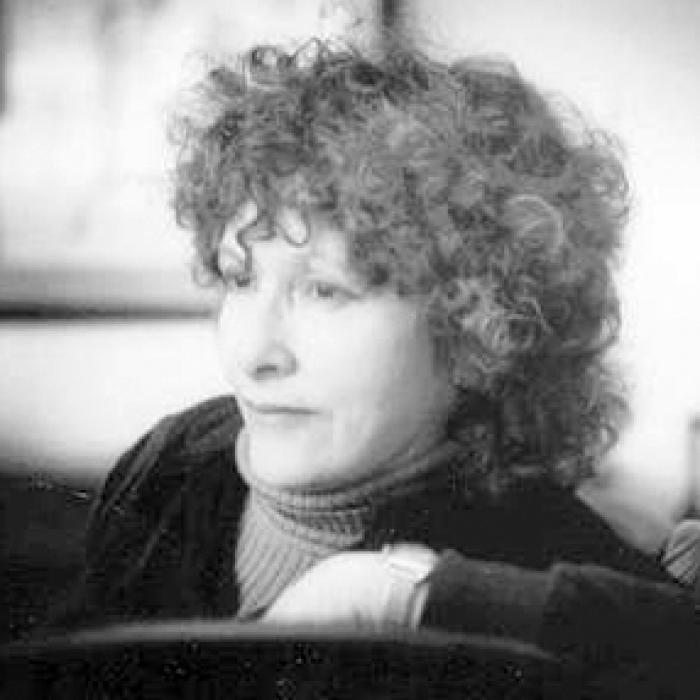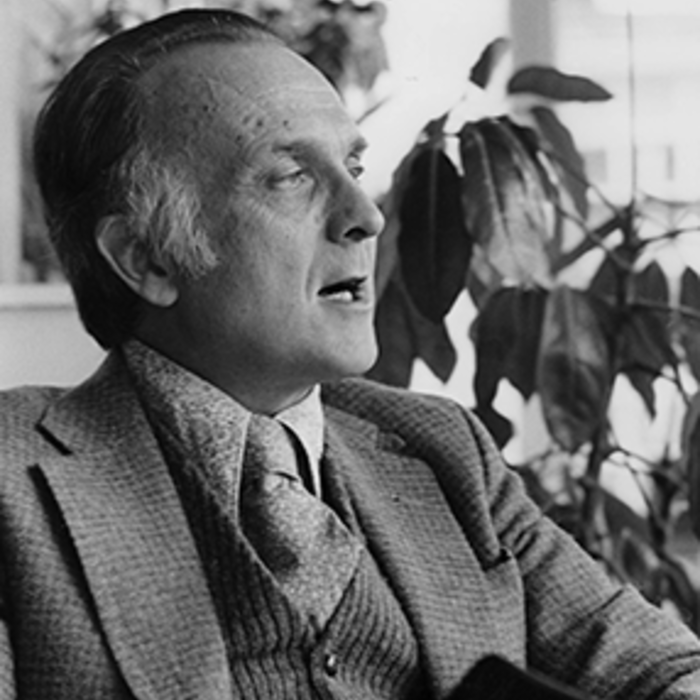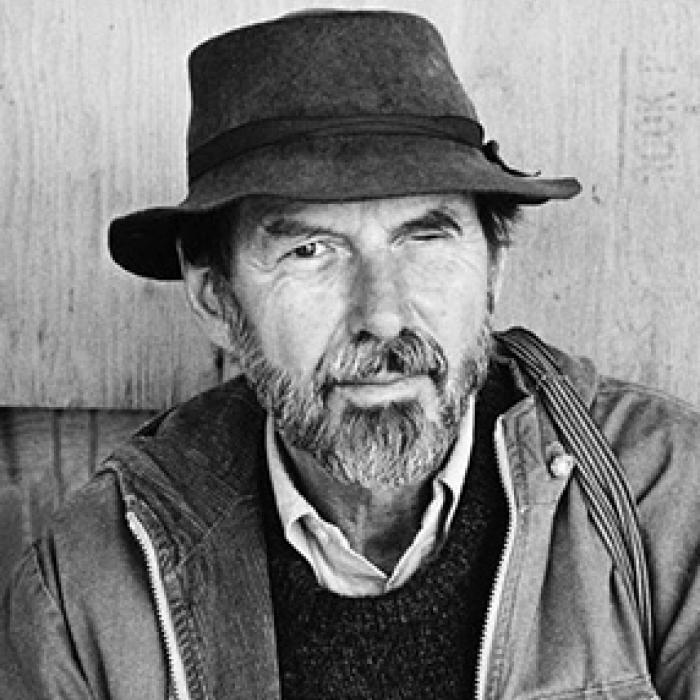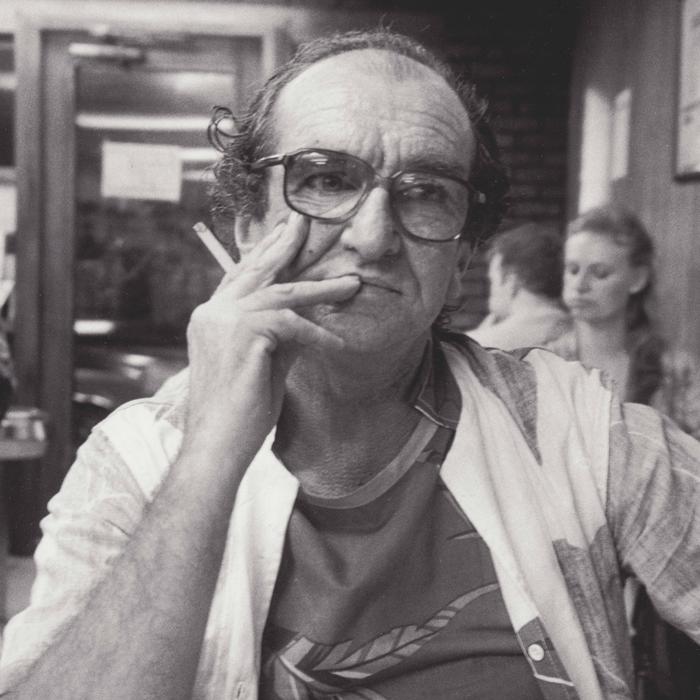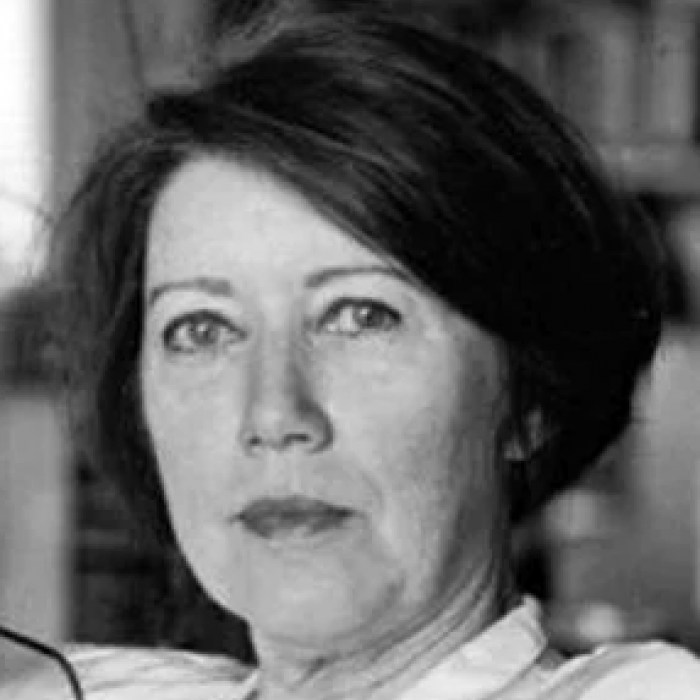Charles Olson
On December 27, 1910, Charles Olson, the son of Karl Joseph Olson, a postman, and Mary Hines, was born in Worcester, Massachusetts. He received his BA and MA from Wesleyan University. Olson taught English for two years at Clark University then entered Harvard University in 1936, where he completed coursework for a PhD in American civilization.
By the age of twenty-nine, he had received his first Guggenheim Fellowship for his studies of Herman Melville. Rather than pursuing an academic career, Olson became active in Depression-era politics. He served as the assistant chief of the foreign language section of the Office of War Information (OWI).
In 1941, Olson began to live with Constance Wilcock in a common-law marriage; they had one child. In 1944, Olson became disillusioned with the OWI over an issue of censorship. To more fully dedicate himself to his writing, he left his job and moved to Key West, Florida, in 1945. He published his influential essay “Projective Verse” in 1950; among other things, the essay posited that poetry should embody the rhythms of natural breath and thought. Olson wrote, “A poem is energy transferred from where the poet got it . . . by way of the poem itself to, all the way over to, the reader.”
Olson began working on his often fragmentary and experimental opus, The Maximus Poems, in the mid-1940s. He chose Maximus (named after the second century Maximus of Tyre, as well as the itinerant fourth century mystic, and possibly a reference to Olson’s towering height) to narrate this poem, which examined the origins of American culture and life in contemporary Gloucester. The Maximus Poems first appeared in 1960; the volume was followed by The Maximus Poems, IV, V, VI (1968) and an unfinished final volume, The Maximus Poems, Volume Three (1975). Kenneth Rexroth noted that the scope of Olson’s poetry was “as broad as [Ezra] Pound’s.” Olson’s shorter poems have been collected in the volumes Archaeologist of Morning (Cape Goliard Press/Grossman, 1970) and Selected Poems by Charles Olson (University of California Press, 1993).
In 1951, Olson was hired as a visiting professor at Black Mountain College in North Carolina. He would eventually succeed the artist Josef Albers to become the school’s rector. Poets and artists including John Cage and Robert Creeley, studied or taught at the college, which was a home for experimental and socially-progressive thought. Olson’s ideas of verse had a profound influence on a whole generation of poets, including writers such as Denise Levertov, Paul Blackburn, and Robert Duncan. After the school closed in 1956, Olson moved to Gloucester, Massachusetts. His second wife died in a car crash in January 1964. Olson served as a visiting professor at the State University of New York at Buffalo (1963–65) and at the University of Connecticut (1969). He received a fellowship from the National Endowment for the Arts in 1969.
Charles Olson died from cancer on Janauary 10, 1970.

